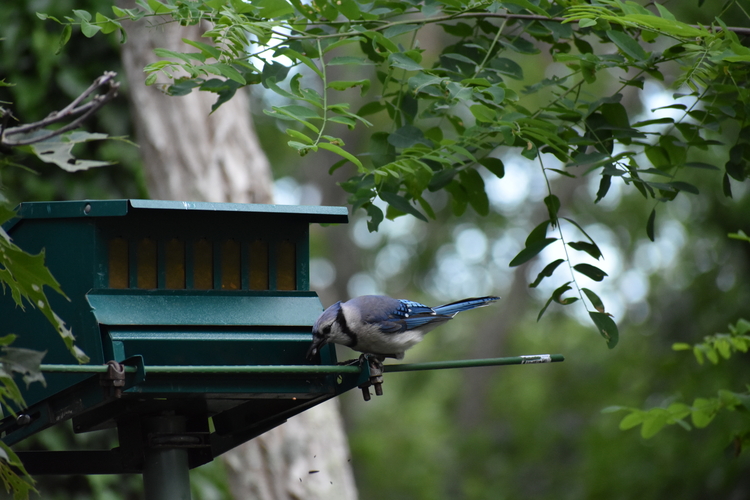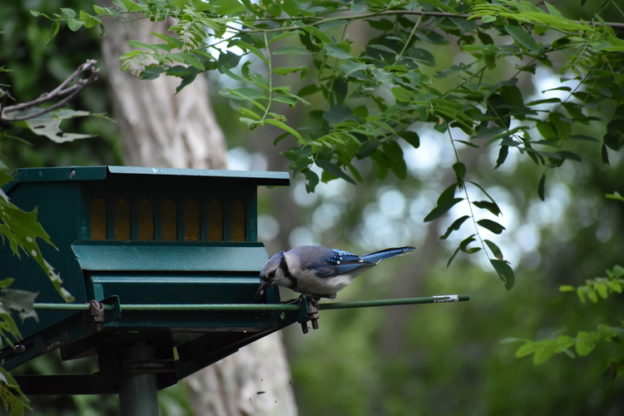Please see July 14 update for latest recommendations.
An as-of-yet unidentified disease has been affecting birds across the mid-Atlantic US, leading to neurological symptoms and eye infections in several backyard species.
The disease has been observed most in fledglings of Common Grackles, Blue Jays, American Robins, and European Starlings. In areas where the disease has already spread, scientists are advising the public to take down birdfeeders and birdbaths.
The disease has not been reported in Massachusetts as of July 13, and there is no evidence that the disease poses a threat to people or to any bird species at the population level.
Given the geographic extent of the disease so far, we are not advising the removal of feeders in Massachusetts, although this is subject change.
Stay Vigilant: Keep Feeders Clean

Bird feeders can contribute to the spread of disease among birds by encouraging them to congregate, feed, and perch on the same surfaces during an outbreak. One recent example was the accelerated spread of Salmonella among birds during an outbreak this winter in the Pacific Northwest.
Taking feeders and birdbaths down can slow the spread of a fast-moving pathogen within a population where it’s already established, but doing so may not prevent the arrival of the pathogen into a new area altogether.
It’s always a good idea to keep birdfeeders and birdbaths clean, though, and to avoid handling dead or diseased animals— regardless of whether or not there’s an avian disease outbreak.
We recommend cleaning feeders every two weeks (or more often with heavy use) with a 1:10 bleach-and-water solution. Always wash your hands carefully after cleaning or touching a birdfeeder.
And if you observe birds with symptoms of the mid-Atlantic disease outbreak— a crust around the eyes, muscle spasms, or paralysis, contact us or call MassWildlife.



Hello,
I have taken my bird feeders down. How long do you estimate we should keep them removed?
Thank you.
Sincerely,
CM
Wondering the same thing